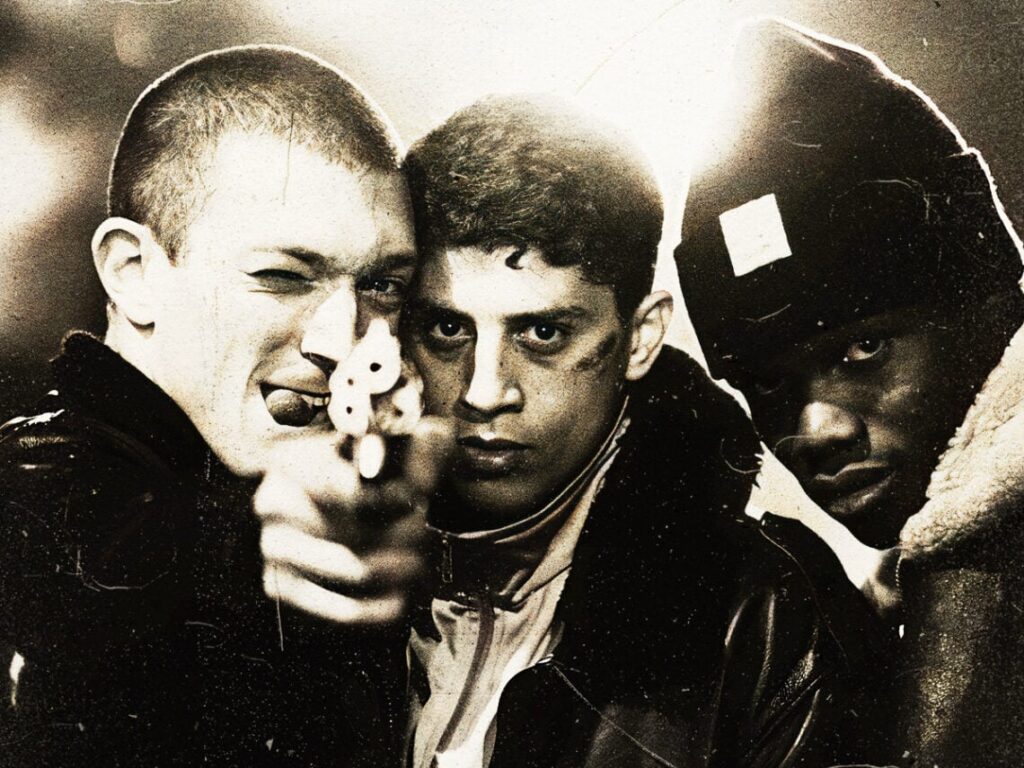The 10 best movies that failed to win the Palme d’Or
 Posted On
Posted On
(Credits: Far Out / Canal+)
Aside from achieving ultimate box office supremacy, as James Cameron has repeatedly done, it’s rare that filmmakers receive direct praise from the industry for their motion picture creations. Indeed, only the occasional awards show and festival provide the opportunity to shower directors with praise, with the Palme d’Or at the Cannes Film Festival being right up there with the ‘Best Picture’ Oscar at the Academy Awards.
Unlike the Oscars, which are decided by a panel of hundreds, the awards at Cannes are decided by a select jury that includes filmmakers, actors, and industry professionals. For example, in 2024, the jury included directors such as Hirokazu Koreeda and Greta Gerwig, as well as celebrated on-screen performers like Lily Gladstone, Eva Green, and Pierfrancesco Favino.
Such often leads to some inspired films winning the coveted Palme d’Or trophy, including Martin Scorsese’s 1976 masterpiece Taxi Driver, Quentin Tarantino’s seminal 1994 movie Pulp Fiction and, more recently, Ruben Östlund’s timely social satire Triangle of Sadness in 2022. Yet, with so much choice, there have been some iconic movies over the years that tried and failed to secure greatness.
Some films came desperately close to grasping the Palme, while others have earned a modern reappraisal that gives it more contemporary clout than it ever did back in the day.
10 great films that failed to win the Palme d’Or:
Days of Heaven (Terrence Malick, 1978)
As far as cinematography goes, it’s hard to look beyond the sheer beauty of the romantic period drama Days of Heaven by Terrence Malick. Masterfully shot by Nestor Almendros, the film stars Richard Gere and Brooke Adams and tells of two lovers who harvest crops for a prosperous farmer in the Texas Panhandle in 1916. Eventually, the man has the woman lead the ailing farmer into a false marriage to claim his vast fortune.
Pretty much every shot of Days of Heaven is stunning and looks as though it were entirely shot during golden hour, leading to an Academy Award for ‘Best Cinematography’. While Malick won ‘Best Director’ at Cannes, the film ultimately lost out on the Palme d’Or to Francis Ford Coppola’s Apocalypse Now.
[embedded content]
Do the Right Thing (Spike Lee, 1989)
As the 1980s drew to a close, Spike Lee made one hell of an impression on American cinema with the vital comedy-drama Do the Right Thing. With Lee starring alongside the likes of Danny Aiello, Giancarlo Esposito, John Turturro and Samuel L. Jackson, the director detailed the racial tension that bubbles up between African-American and Italian-American residents of a Brooklyn neighbourhood on the hottest day of the year.
Do the Right Thing is a genuinely important piece of cinema for its treatment of race and identity, and it was rightfully nominated for ‘Best Original Screenplay’ at the Oscars. One might have expected a Palme d’Or to follow suit, but Lee ended up missing out on the prize because of Steven Soderbergh’s directorial debut Sex, Lies, and Videotape.
[embedded content]
Fargo (Coen brothers, 1996)
It’s hard to name the best movie the Coen brothers have ever made, and while many would argue The Big Lebowski, others might say that 1996’s black comedy crime film Fargo is the pick of the bunch. It’s a truly unique piece of cinema in which Frances McDormand plays a pregnant police officer who investigates a triple murder case that occurs after William H. Macy’s car salesman gets into a serious ransom mishap.
The tone of Fargo is what separates it from other movies of its kind, and the Coens masterfully detail the Minnesota ‘nice’ attitude while layering the film with criminal intrigue and sheer hilarity in equal measure. Joel Coen was recognised for his directing at Cannes, but Fargo ultimately lost out on the Palme d’Or, with a reluctant concession to Mike Leigh’s Secrets & Lies.
[embedded content]
La Haine (Mathieu Kassovitz, 1995)
It’s fair to say that Vincent Cassel is one of the biggest icons in contemporary French cinema, and back in 1995 he gave one of his breakthrough performances in Mathieu Kassovitz’s social thriller film La Haine, alongside Hubert Kounde and Said Taghmaoui. The film tells of a day and night spent in a poor immigrant neighbourhood in the suburbs of Paris by three friends, Vinz, Hubert and Said.
Beautifully shot in black-and-white, Kassovitz’s film explores the problematic themes of poverty and immigration while providing a tense narrative that at once left audiences feeling humoured and yet profoundly shocked. La Haine might have been fully deserving of the Palme d’Or, but unfortunately for Kassovitz, Emir Kusturica’s Underground stood in the way and took the prize for itself.
[embedded content]
Melancholia (Lars von Trier, 2011)
It’s fair to say that the films of Lars von Trier are not everyone’s cup of tea. Known for his endless provocations, von Trier’s work often requires dedication to endure some serious heft. Even though his 2011 science fiction drama Melancholia is indeed heavy in terms of its themes, it’s perhaps one of the Danish director’s most accessible works and is equally considered one of his best.
Melancholia is von Trier’s exploration of depression. It stars Kirsten Dunst and Charlotte Gainsbourg as two sisters who deal with the inevitability of a rogue planet crashing into Earth in very different manners. Some critics see Melancholia as von Trier’s master statement. Still, he was unable to win the Palme d’Or with his effort because the prestigious prize was granted to Terrence Malick’s The Tree of Life, with many believing this was because of the Dane’s curious comments about Hitler during that year’s press conference.
[embedded content]
Mouchette (Robert Bresson, 1967)
Recognised as one of the greatest French movies ever made, the 1967 coming-of-age tale Mouchette, directed by Robert Bresson, tells the story of a young girl in the countryside who struggles to grow under the toxic tutelage of others. Starring the mighty Nadine Nortier at the helm, the film is a beautiful, philosophical exploration of young life that uses spiritualism to get to the heart of its title character.
Certainly deserving of the Palme d’Or, Bresson lost out to a worthy winner in the form of Michelangelo Antonioni’s Blow-Up, a fascinating study into the avant-garde that cemented the director as an icon of European cinema.
[embedded content]
Oldboy (Park Chan-wook, 2003)
Known to be one of the most celebrated South Korean movies ever made, 2003’s Oldboy stamped director Park Chan-wook onto the map of world cinema. A dark and grisly tale, elegantly told, Oldboy follows the story of a man who, after having been imprisoned for 15 years, is mysteriously released and instructed to find his captor in just five days, with actor Choi Min-sik leading the cast.
Chan-wook only narrowly missed out on taking home the Palme d’Or, too, with 2003 certainly being one of the most befuddling years in the festival’s history. Indeed, despite such classics as Oldboy, Tropical Malady, Nobody Knows, and 2046 being nominated, somehow Michael Moore’s Fahrenheit 9/11 walked away with the trophy. Still, at least Chan-wook won the Jury Prize.
[embedded content]
The Sacrifice (Andrei Tarkovsky, 1986)
Undoubtedly the greatest Russian filmmaker of all time, Andrei Tarkovsky is responsible for such marvellous cinematic creations as Solaris, Stalker and 1986’s Sacrifice, which many consider to be his masterpiece. A bleak drama, Tarkovsky Palme d’Or nominee told the story of a man searching desperately to restore global peace at the dawn of WWIII, striking a pact with God in the process.
The 1986 Palme d’Or was something of a grave injustice, with Tarkovsky certainly worthy of the win when considering that Roland Joffé’s underwhelming Mission was the film that took home the prize.
[embedded content]
Son of Saul (László Nemes, 2015)
In 2023, Jonathan Glazer gifted cinema with one of the greatest depictions of the holocaust ever put to screen in the form of The Zone of Interest, but years earlier, László Nemes had rivalled his vision with the terrific 2015 film Son of Saul. An extraordinarily visceral piece of cinema, Son of Saul tells the story of a prisoner in a concentration camp who feels compelled to give the body of a child a proper burial.
Nemes’ movie certainly faced fierce competition in 2015, going up against the likes of Todd Haynes’ Carol, Paolo Sorrentino’s Youth and Yorgos Lanthimos’ Lobster for the glory of the Palme d’Or, eventually losing out to Jacques Audiard’s Dheepan.
[embedded content]
Wings of Desire (Wim Wenders, 1987)
It’s a genuine surprise that the German director Wim Wenders didn’t take home the Palme d’Or for his 1987 film Wings of Desire, given just how suitable it is for the festival. An ethereal tale that follows an angel looking over Berlin who longs to be mortal, Wenders’ film offered imagery that would never be forgotten in European cinema, largely thanks to some excellent performances from Bruno Ganz and Otto Sander.
Instead of Wenders taking home the prize, Maurice Pialat won thanks to his film Under the Sun of Satan, while other classics like Barbet Schroeder’s Barfly and Stephen Frears’ Prick Up Your Ears.
[embedded content]


